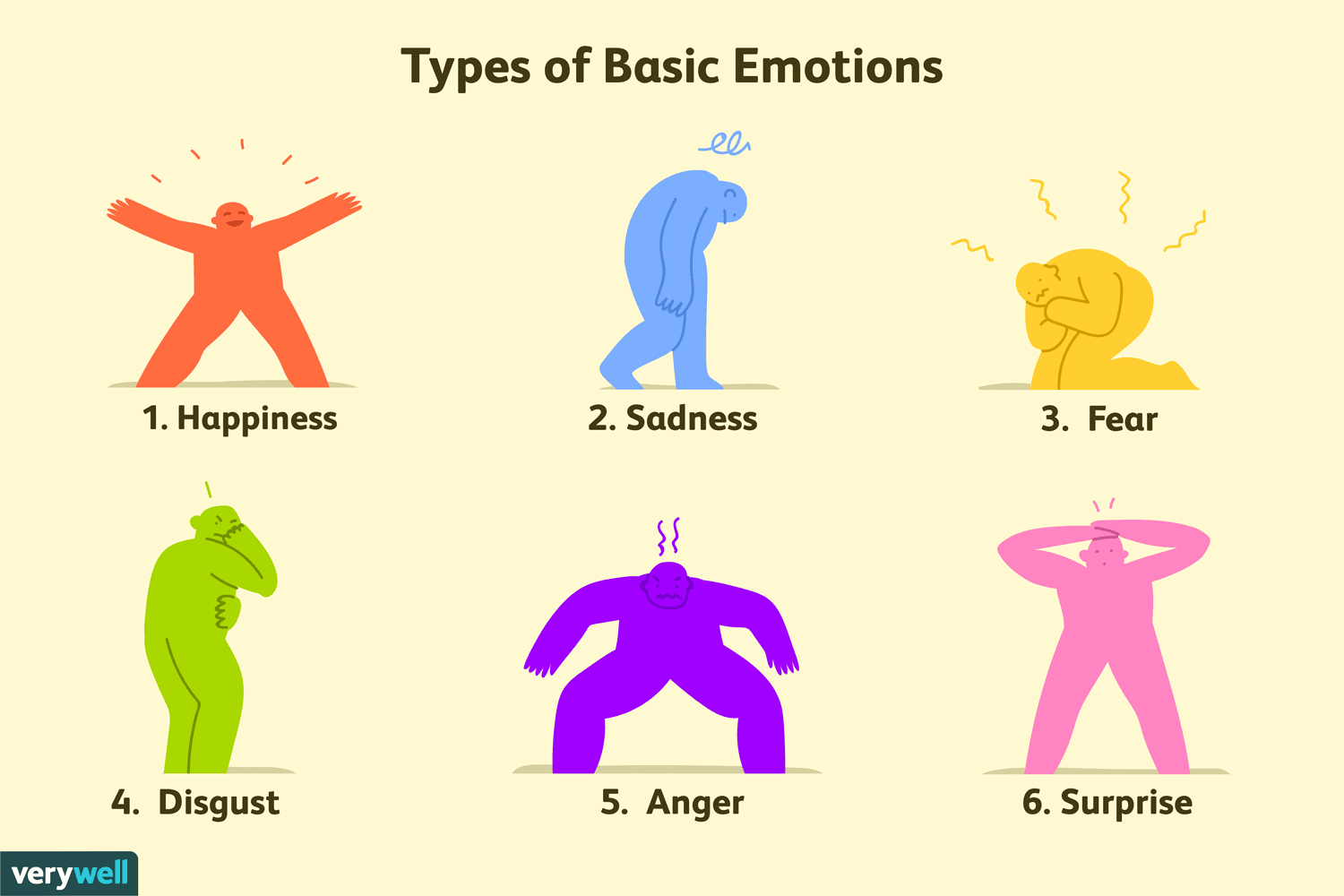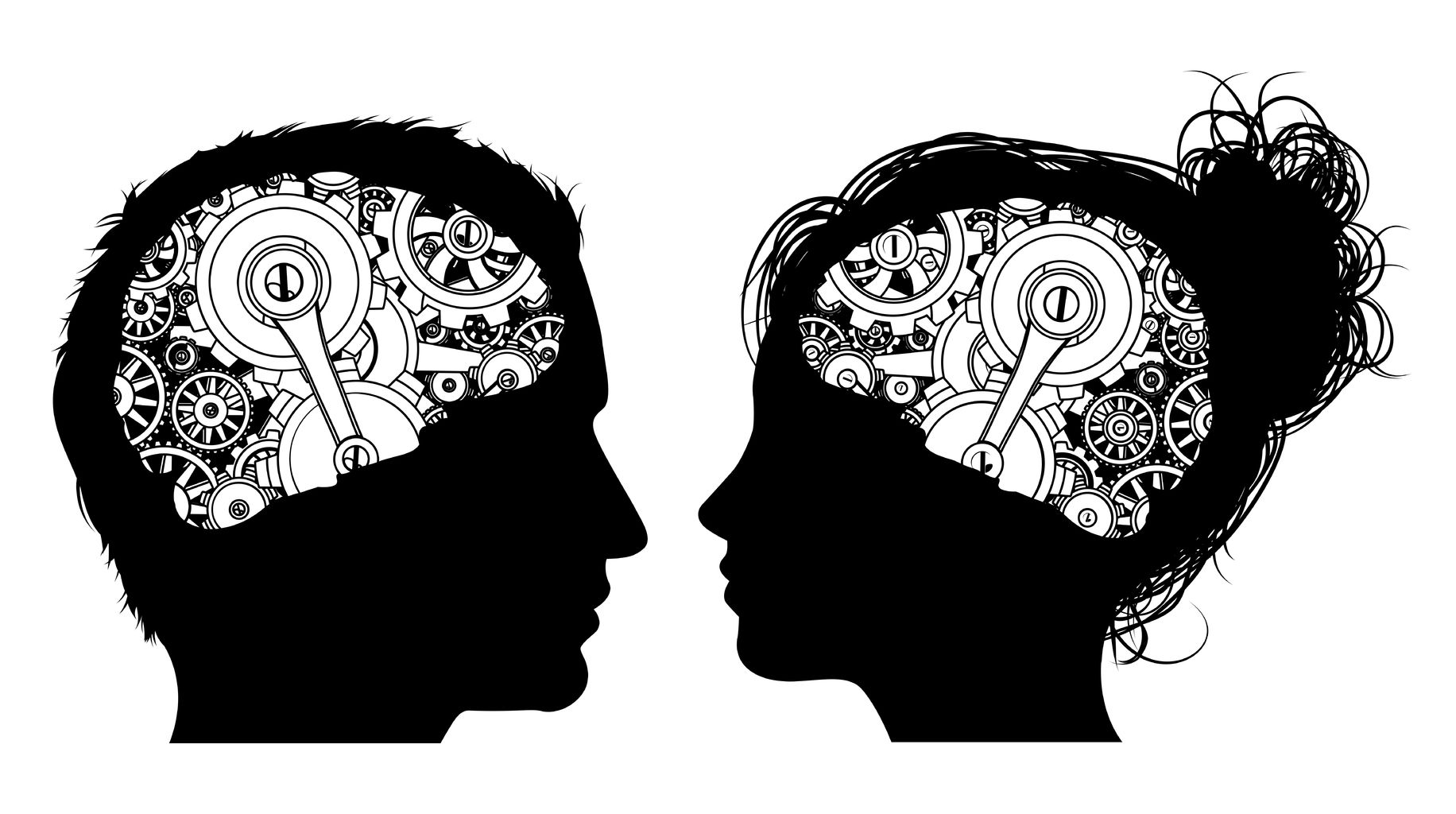By Anna Tsekani,
Emotions and their origins have long been the center of debate in the psychotherapy community. They were frequently regarded as symptoms to be treated rather than something to be investigated on their own. Recently, researchers have shed light upon sex differences in recall ability based on gender and wordlist types.
One of the first people to identify the significance of emotions and the development of emotions as a topic of research was Paul Ekman. Emotions, according to Ekman (1999), required as much attention as thoughts, processes, drives, and behavior. Over the years, Ekman developed six basic emotions including anger, disgust, fear, happiness, sadness, and surprise and he defined several perspectives, descriptions, or elements that combine to form more complex emotions.

Hume was also concerned with emotions defining them as a type of sensation, or “impression,” that is physically stimulated by the movement of the “animal spirits” in the blood. These impressions can be pleasant or unpleasant but their nature does not allow for differentiation of the various emotions.
Though emotions and emotionally charged words are differently processed by people and especially from gender. More and more researchers are shedding light on the cognitive differences in recall ability between men and women, as well as the different types of emotional words. Among the numerous psychological differences, sex differences in emotion and emotional perception have long piqued scientists’ interest and have been discovered in previous research.
Men and women respond differently psychologically and physiologically to a wide range of emotional stimuli, according to empirical research. On the one hand, females outperform males in verbal tasks like word recall and recognition, as well as visual recognition memory. On the other hand, males outperform females in specific spatial memory tasks as a result. In terms of behavioral differences, women and men are widely assumed to process emotions differently. It is significant to mention that psychological studies have found better memory in women than men for emotional events, but the neural basis for this difference is unknown.
Simultaneously, researchers have discovered that emotionally charged experiences are more memorable than neutral ones. There is better memory for traumatic events than for mundane events and for emotionally charged words and images than for neutral ones. Women recall more emotional autobiographical events than men in timed tests, produce memories faster or with greater emotional intensity in response to cues and report more vivid memories of their first date, last vacation, and a recent argument than their spouses.
Researchers discovered sex differences in neural systems in studies where participants’ recall abilities were required and examined. Women have significantly more areas activated by subjective emotional experience as well as successful long-term memory encoding. This “colocalization” of evaluative and encoding processes could explain why women have better emotional memory than men.
Much of the fascination with sex differences in emotional abilities stems from concerns about heterosexual relationships. Future research could benefit from building on previous studies of actual interactions. Croyle and Waltz discovered that females showed greater awareness than males within the relationship but not outside the relationship, implying that they value relationship-specific information more. It would also be interesting to investigate the patterns of within-relationship versus outside-relationships in same-sex relationships, where sex differences are irrelevant.

Therefore, still, there is a small number of qualitative researchers and psychologists examining sex differences in emotional words and especially such research in Greece. Such studies and further research can significantly improve our knowledge and tools in relation to a variety of human-centered issues. Though, more studies are needed in order to examine and define the sex differences in emotional recall and cognition.
Based on previous studies, researchers have found differences between men and women in recall ability. Males and females perform differently when it comes to recalling neutral, negative, and positive words.
Although previous research has found sex differences and especially that women recall more emotional autobiographical events than men in timed tests and produce memories faster or with greater emotional intensity.
Future studies could focus though more on studying the sex differences in recall ability in different age groups and in other countries in order to have a complete picture of the situations.

According to studies involving self-reports of emotional experiences, women exhibit enhanced emotional responses and more detailed representations of their own emotions. Some studies support the notion that women are more emotionally expressive and have a better memory for affective everyday life events. Other studies used more objective measures to assess sex differences because retrospective data and self-reports may be contaminated with stereotypical biases. According to research using physiological measures of emotional arousal and attention, women are more reactive to emotional stimuli than men. Interestingly, a recent study found that increased emotional arousal during the processing of aversive images occurs relatively late in the time course of stimulus processing in women, implying that there may be gender differences in the regulation of the emotional response.
The stereotype appears to hold when emotionality is defined as a global disposition that is stable over time and largely independent of social context: women consistently report being more emotionally intense than men. However, when emotionality is defined as the experience of a specific emotion, the results are inconclusive.
References
- Smith, P., & Waterman, M. (2005). Sex differences in processing aggression words using the emotional Stroop task. Aggressive Behavior, 31(3), 271-282.
- Kring, A. M., & Gordon, A. H. (1998). Sex differences in emotion: expression, experience, and physiology. Journal of personality and social psychology, 74(3), 686.
- Barrett, L. F., Lane, R. D., Sechrest, L., & Schwartz, G. E. (2000). Sex differences in emotional awareness. Personality and Social Psychology Bulletin, 26(9), 1027-1035.
- Gardener, E. K., Carr, A. R., MacGregor, A., & Felmingham, K. L. (2013). Sex differences and emotion regulation: an event-related potential study. PloS one, 8(10), e73475.




